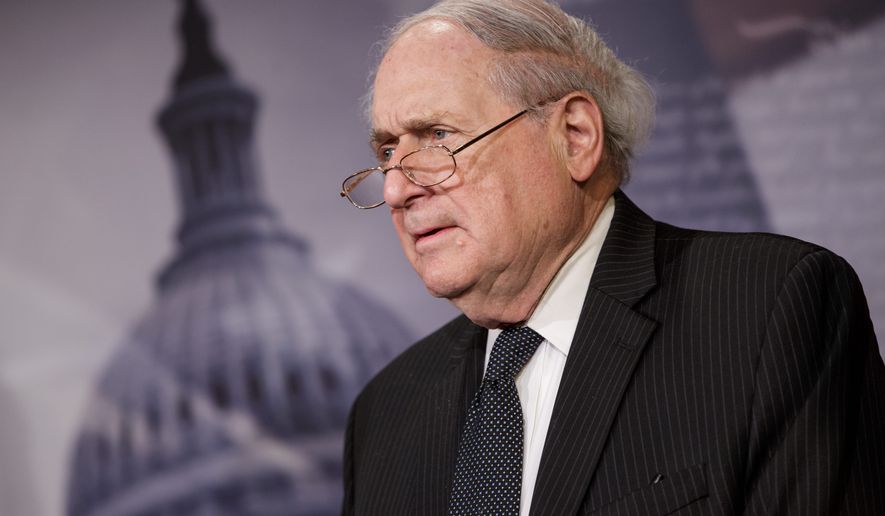Sen. Carl Levin, the chairman of the Armed Services who is retiring at the end of this year, said Wednesday he fears Republicans’ animosity toward President Obama will make it impossible to find compromises on critical national security issues over the next two years.
The six-term Michigan Democrat said he’s been disappointed by constant personal attacks on the president’s foreign policy, which he said go beyond anything Democrats did to President George W. Bush, and which he said seem to be driven as much by dislike of the president as by objections to his policies.
“It seems no matter what the decision is, there is intense criticism of President Obama,” he told reporters. “A lot of the criticism is perfectly legitimate, but it just has gotten to a point where it’s too personal and that makes it difficult for there to be a bipartisan foreign policy in this country, which is really important.”
He said Republicans’ preference to criticize the president rather than finding bipartisan compromises is holding up key foreign policy issues, like working out a new authorization for the use of military force against the Islamic State in Syria.
Republicans counter that their criticism of Mr. Obama stems not from how they feel about the president personally, but rather from a judgment that he’s forfeited international leadership, leaving the U.S. weakened.
“I think that this president’s foreign policy has put us in greater danger than any time in my life, and it’s a feckless foreign policy without a strategy and without a policy except for get out of everything,” said Sen. John McCain, Arizona Republican who will chair the Senate Armed Services Committee next Congress.
Mr. McCain said he has looked at each of the president’s decisions objectively and predicted poor outcomes, from Iraq’s problems after the president withdrew combat troops from there, to the deteriorating situation in Syria after he felt Mr. Obama didn’t act aggressively enough against the Islamic State.
“I don’t have any dislike for President Obama, but when there’s 200,000 dead in Syria and 150,000 in prison and 3.5 million refugees, when we see the collapse of the Iraqi government because we didn’t leave a sustaining force behind, of course I get angry because my heart goes out to the families of those who were sacrificed,” said Mr. McCain, who faced off against Mr. Obama in the 2008 presidential election.
Mr. Levin said partisan disagreements end up creating problems at all levels, including just getting bills to the floor in the Senate.
He said the annual defense policy bill hasn’t been debated normally on the Senate floor in recent years because of GOP filibuster threats and demands for votes on non-defense amendments.
In a normal legislative process, the House and Senate would each pass bill dictating the Defense Department’s priorities for the next fiscal year. Then, the two sides would get together to iron out differences and send a conference report to be passed in both the House and Senate.
The past two years, however, the Senate has been unable to pass its version of the annual defense bill. A bill has cleared the Armed Services Committee, but Mr. Levin says the GOP demands to debate too many extraneous amendments on the floor, which angered Majority Leader Harry Reid.
Mr. Levin would then write a final compromise in closed-door negotiations with his House GOP counterpart, and Mr. Reid would bring that to the floor in a year-end, take-it-or-leave-it vote.
“That began this spiral that we’re in where the only way to get it done is the clock,” Mr. Levin said.
He said Mr. Reid has had to resort to blocking out amendments, in a procedural tactic known as “filling the tree,” in order to final votes on bills without having to face unlimited GOP opportunities for delays.
“The threat of the filibuster on everything then caused the leader to move to a mechanism which was used before him, which is filling the tree,” Mr. Levin said. “He’s not the first one to do it. His tree probably has had a few more leaves on it, limbs on it.”
• Jacqueline Klimas can be reached at jklimas@washingtontimes.com.




Please read our comment policy before commenting.